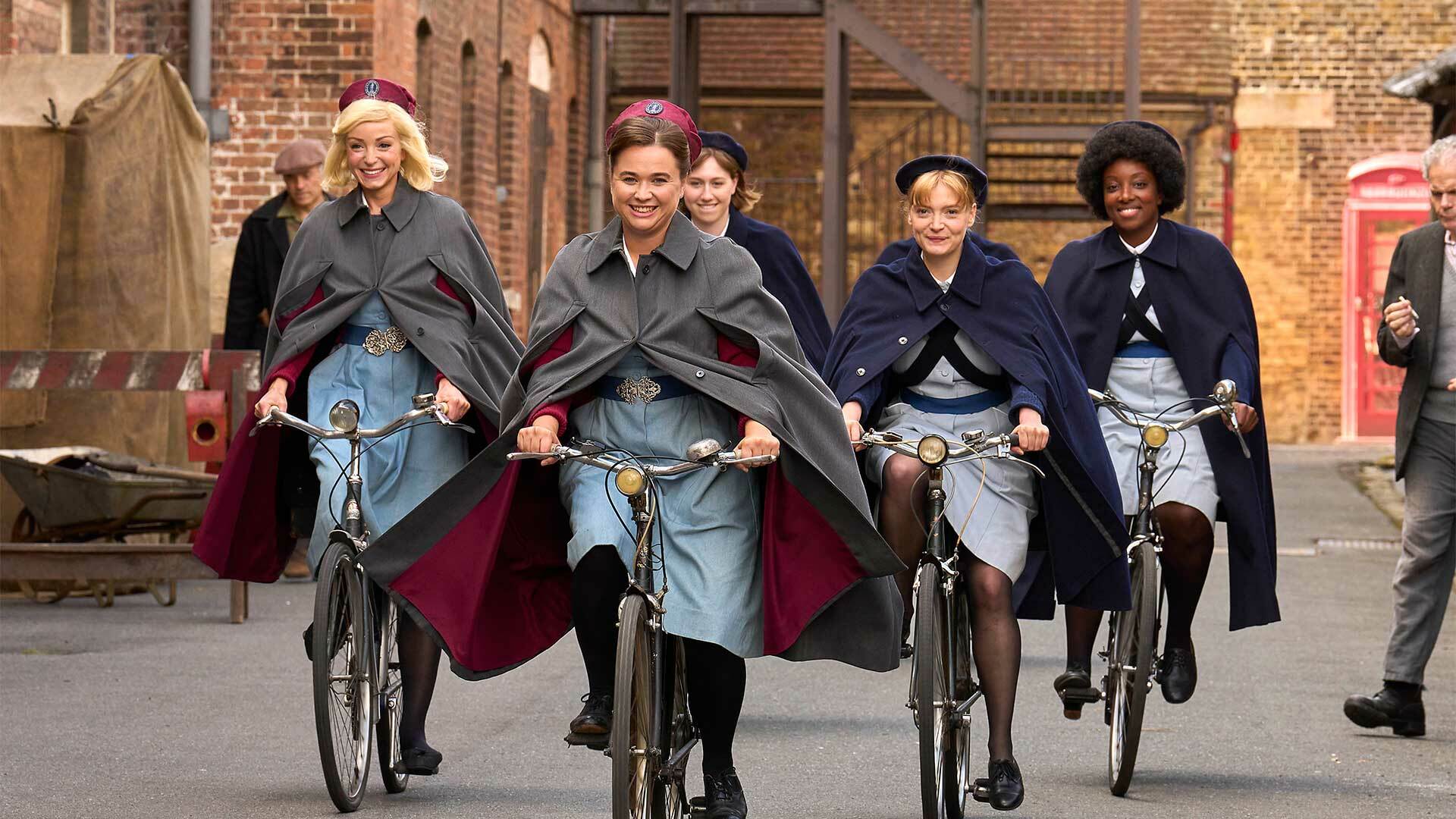Call the Midwife: New Beginnings (2025) – A Gentle Revival of Grace and Humanity

There are few series that age as beautifully as Call the Midwife, and New Beginnings proves that time has not dimmed its heart — it has deepened it. In this new chapter, Poplar feels both familiar and renewed: the cobbled streets, the laughter of children, the hush of prayer in the small chapel — all woven together into a portrait of endurance. This isn’t a story about change overpowering the past; it’s about learning to carry the past tenderly into the future.

From the very first scene, there’s a sense of lightness — not in tone, but in spirit. The show no longer mourns what has been lost; instead, it celebrates what has survived. The warmth of New Beginnings lies in its ability to make the ordinary sacred again. Every moment — a birth, a reunion, a shared meal — feels touched by reverence.
Trixie, played with luminous restraint by Helen George, anchors the season with quiet vulnerability. After the heartbreaks of the past, she moves through Poplar with a fragile strength, learning that grief and grace often arrive hand in hand. Her journey isn’t about healing quickly — it’s about learning to live with the echo of what once was, and still finding beauty in service.
Lucille’s return brings a burst of color and compassion. Her storyline, stretched across continents, becomes a reminder that kindness travels farther than borders ever could. Leonie Elliott infuses her role with tenderness and light — every smile, every word of comfort feels like an act of defiance against the world’s harshness.

Sister Julienne, as ever, is the heart that binds them all. Jenny Agutter’s performance transcends the screen; she embodies faith as quiet perseverance, not as rules but as presence. In her voice, every prayer sounds less like dogma and more like hope whispered to the wind. She carries the season’s moral weight effortlessly — reminding us that strength is not loud, but steadfast.
Director Heidi Thomas paints this season like a devotional painting — rich with soft colors, full of movement and stillness in equal measure. The visual poetry of sunlight through lace curtains, bicycles gliding through morning fog, and hands clasping in wordless empathy feels timeless. It’s not nostalgia; it’s gratitude turned into art.
Each episode unfolds like a hymn. There are tears, of course — there always are — but they feel different this time. They cleanse rather than wound. The show’s rhythm, with its mix of laughter and lament, mirrors life itself: messy, unpredictable, but somehow always guided by grace.
The writing glows with compassion. It honors the struggles of women who carry both life and loss in their hands every day — nurses, mothers, daughters, sisters. The dialogue lingers in the air like a prayer, never forced, always sincere. There’s a deep humanism here — the belief that love, even in hardship, is sacred work.

By the final episode, as the bells toll and the streets fill with the hum of new life, Call the Midwife achieves something transcendent. The midwives ride out once more, their bicycles glinting in the dawn. The camera lifts slowly, the horizon blooming with light — and we understand that this isn’t just an ending. It’s a benediction.
Few shows can make you cry and heal you in the same breath, but New Beginnings does. It restores faith — not in miracles, but in the ordinary grace of human kindness.
Rating: 4.9/5 — A season that breathes, prays, and loves. Call the Midwife: New Beginnings is not just television — it’s a living hymn to the resilience of the human spirit.
Related movies:











